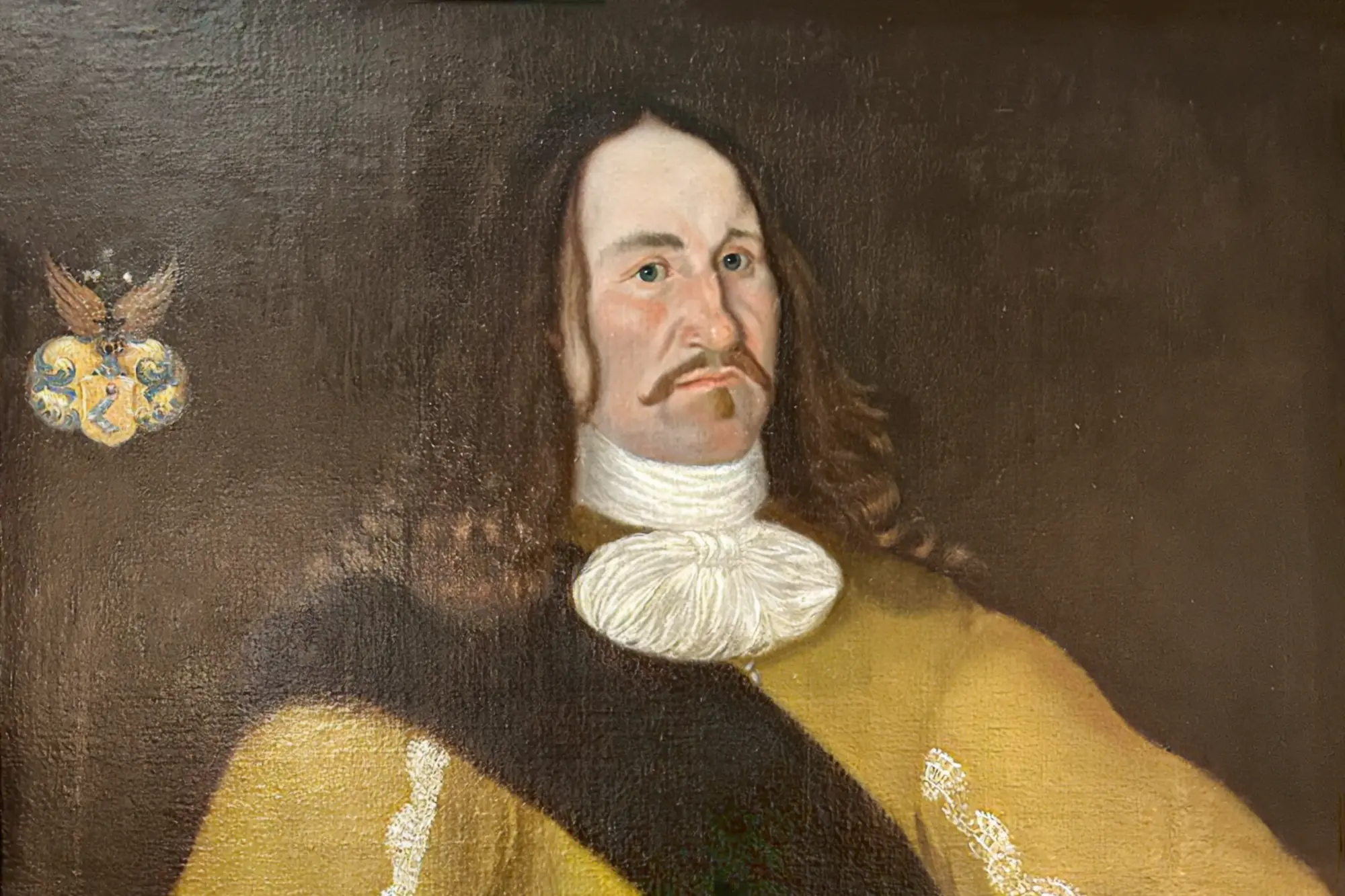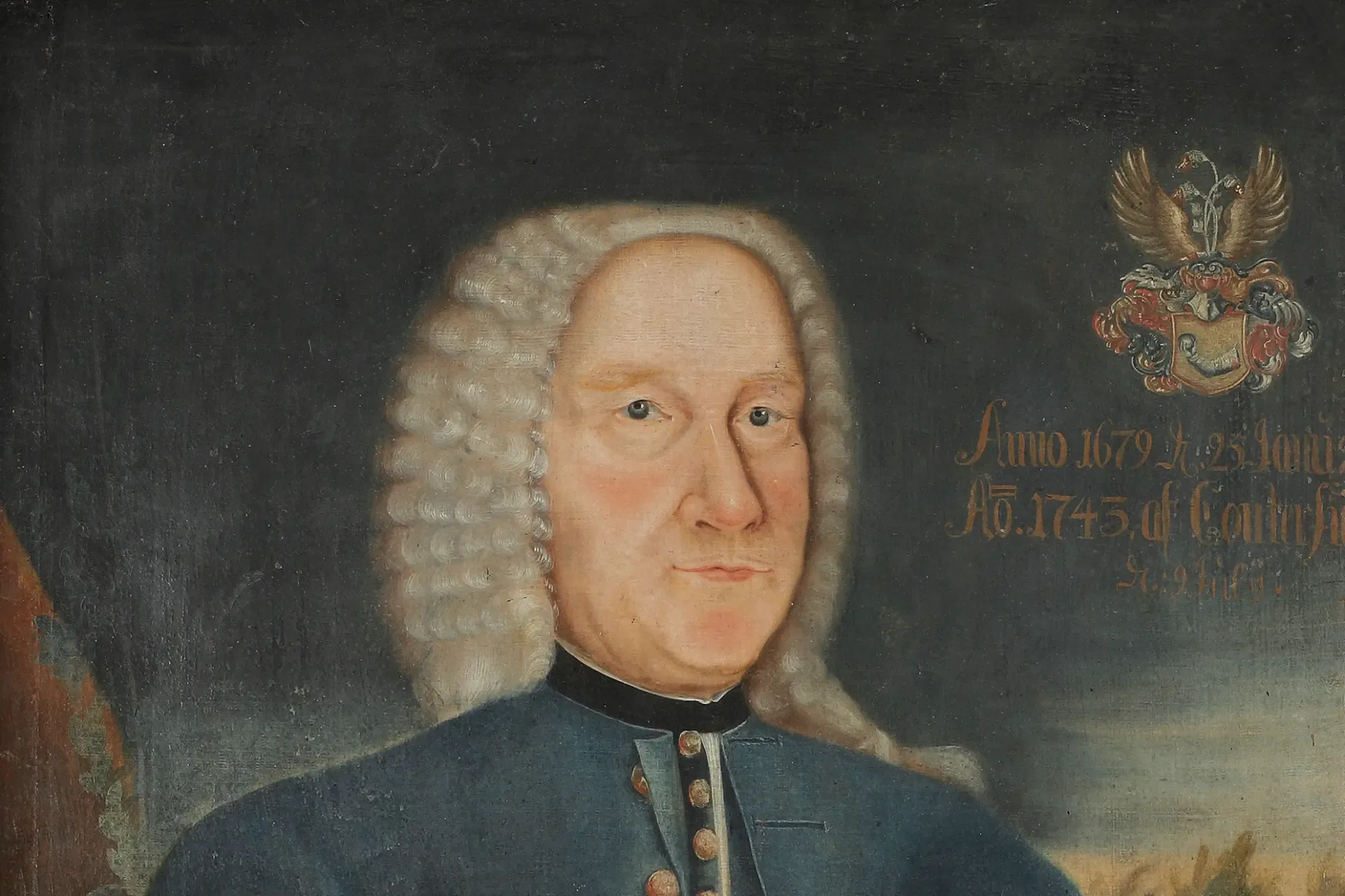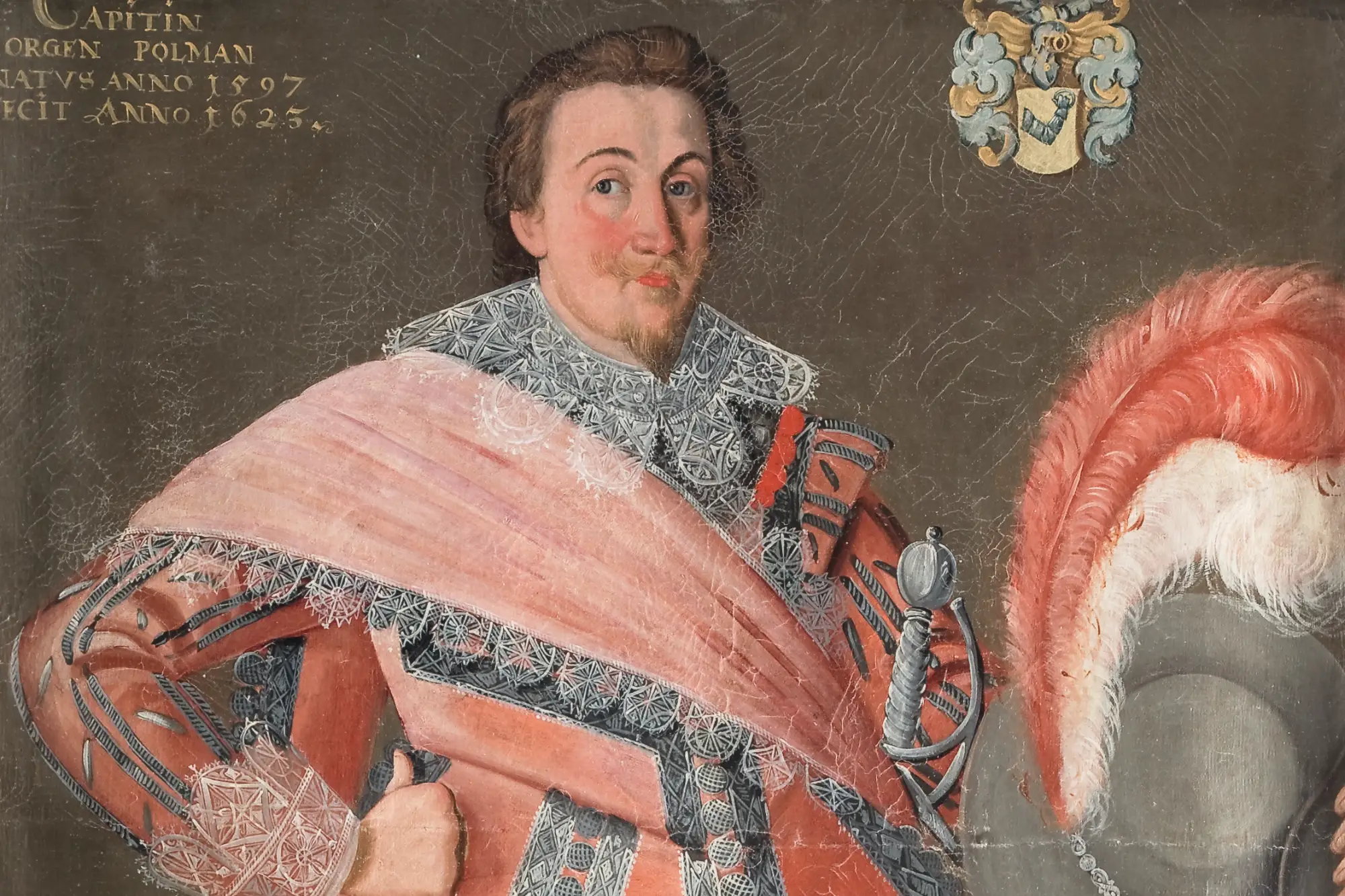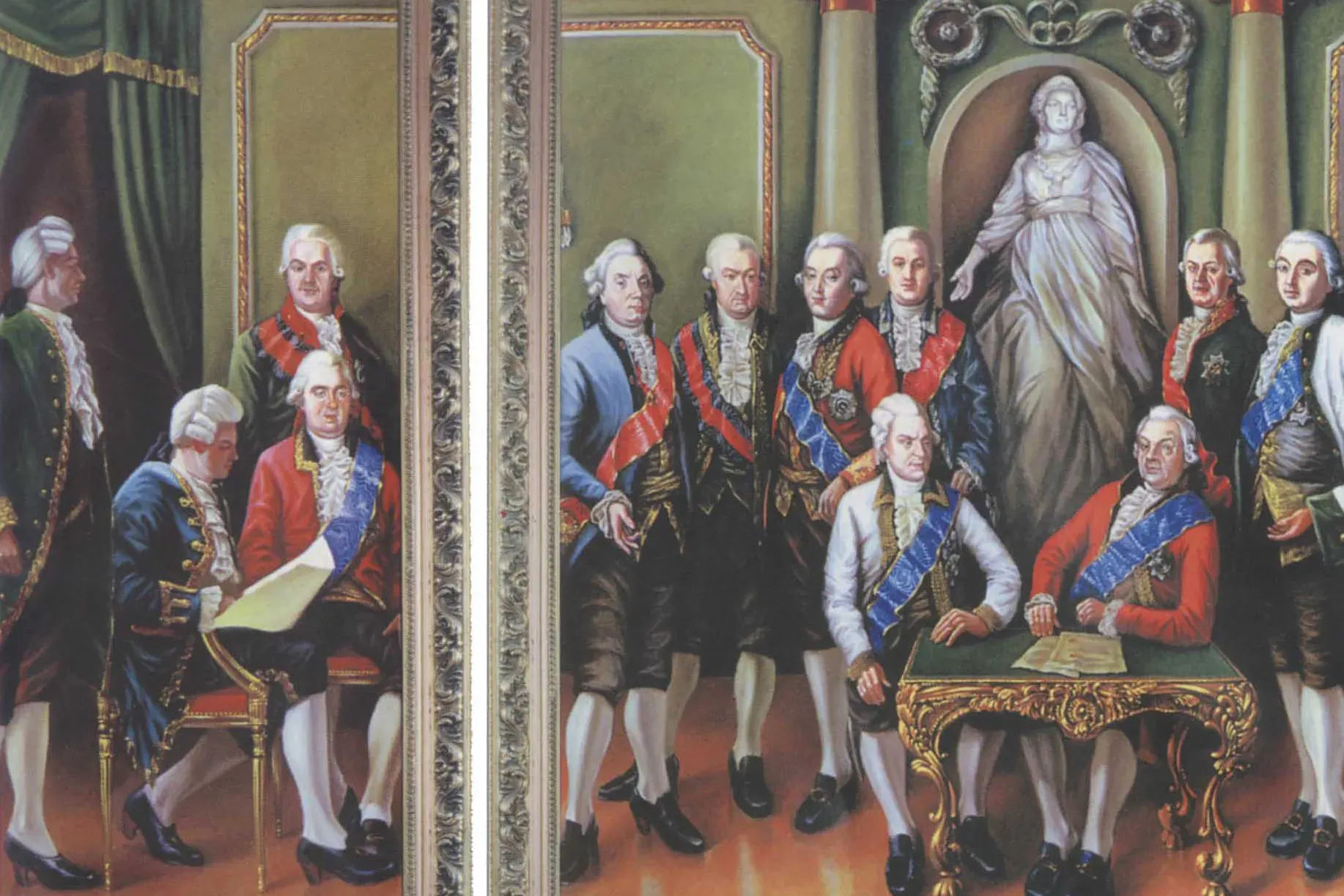The Earnest Egalitarian
Otto Fredrik Påhlman was a decorated military officer and political figure. He was the son of Johan Magnus Påhlman and Margareta Helena Stålhammar, born on 24 March 1785 at Strättö.[[1]] His father died when he was 12 years old, and a year later, in 1798, Otto became a cadet at Karlberg – like many in his family, he started his career early.
Military career
In 1802, Otto graduated from the War Academy at Karlberg, and became an ensign at the life regiment’s brigade. He was promoted to second lieutenant in 1803. He participated in the Finnish War of 1808-09 – which was fought yet again for territorial control between Sweden and Russia – at Lokalax, Järvenpä, Viiais and Helsinge. In 1809, he was First Lieutenant in the Finnish Guard, and captain of the second guard in 1810.
Over several years, Otto served as an adjutant[[2]] to Crown Prince Karl Johan, beginning in 1811-12. In 1813, he was promoted to the rank of major, and witnessed the battles at Grossbeeren and Dennewitz alongside the prince, and was also appointed commander of Karlsten’s Fortress in Sweden. He played a similar role as the adjutant in 1814 when the Swedish army entered Norway, and he took part in the siege of Fredrikshall. That same year, he was honoured twice – he first received the Royal Order of the Sword (Riddare av Svärdsordern) on 9 July, followed by the Order of Saint Vladimir (fourth class; RRS:tVlO4kl) on 24 December. Otto was made a company commander in 1815, and lieutenant colonel in 1817.
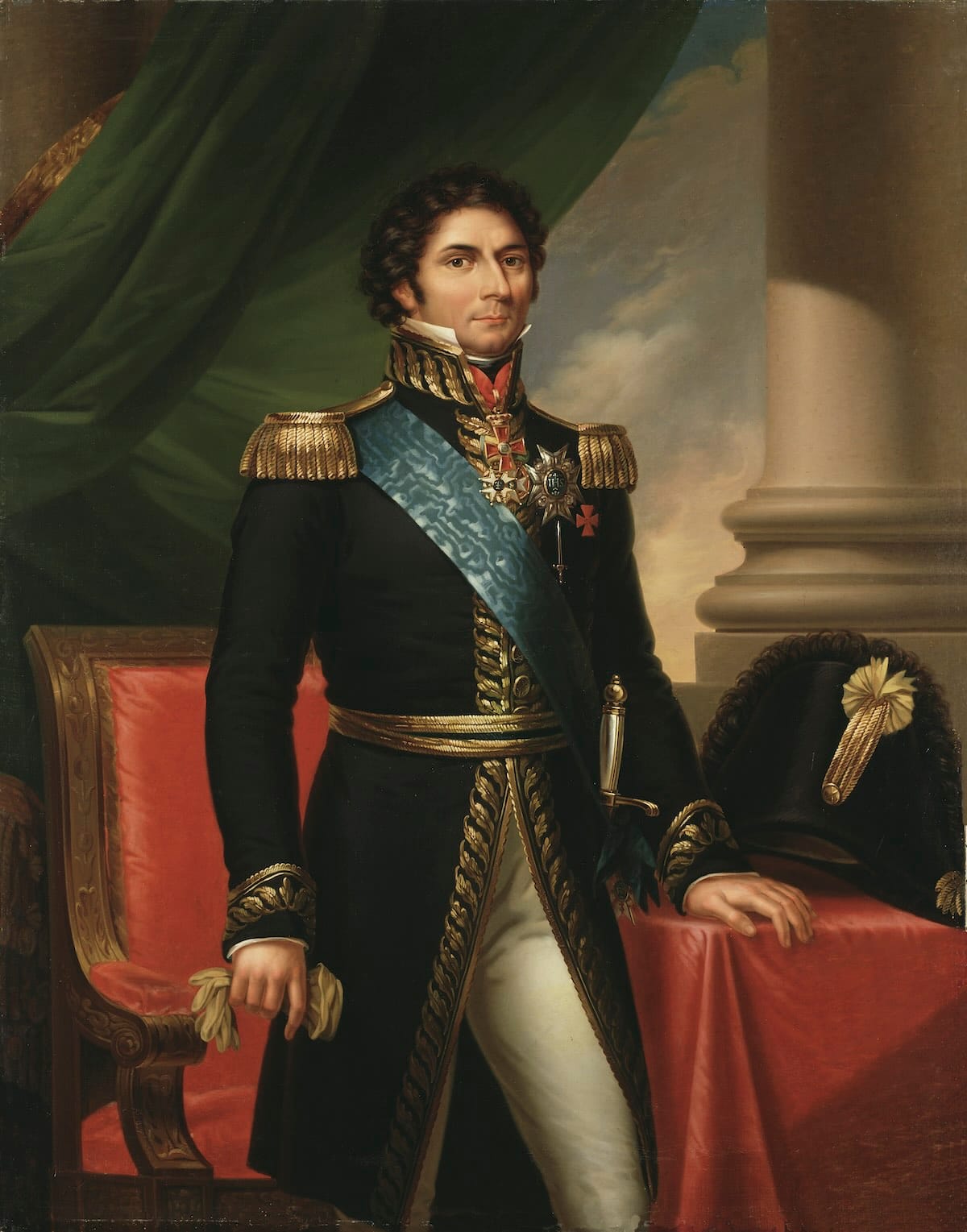
Political beginnings
Aside from his successful military career, Otto was also deeply involved in politics and other affairs. He attended every parliamentary session between 1809 and 1818, and was an influential figure. From 1810 to 1814, he was the director of Riddarhuset[[3]]; a state auditor in 1810 and 1815; member of the Swedish legislature, Riksdag, in 1810,[[4]] 1815 and 1817; member of the banking committee in 1809-10;[[5]] member of the press freedom committee in 1818; and a representative of the National Debt Office from 1818 onwards.
Among the events comprising the changing political landscape of the time was the election of a confident French marshal, Jean-Baptiste Jules Bernadotte, later known as Karl XIV Johan,[[6]] as the Crown Prince of Sweden in 1810. Otto, a liberal, was in favour of this decision:
“Carl Axel Löwenhielm recalls in his memoirs what he said during the agitated days in Örebro in 1810 to an enthusiastic liberal nobleman, Captain Påhlman, who anticipated a social transformation in the republican spirit: “You are cheering now, but you are fooling yourself about the future, it won’t be you and your party that will acquire any intimacy with Bernadotte, and that is because you do not know French, whereas I and my brother, who are against this choice, will become his leading favourites.” And he adds: “What I said then, came completely true…””[[7]]
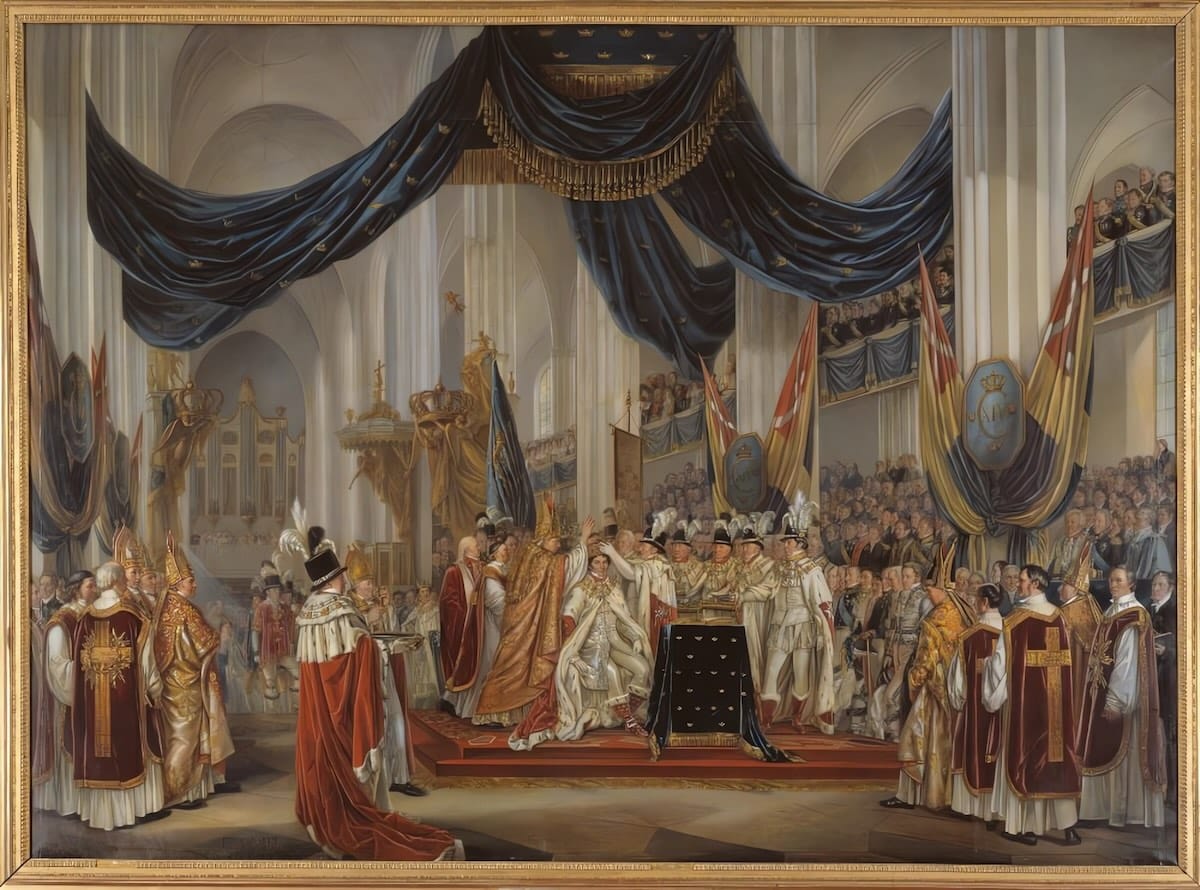
“Does such a thing deserve to be left in marble to posterity?”Otto Fredrik Påhlman
Otto delved into politics, and often shook things up. At his very first Riksdag in 1809-10, he raised a motion urging the investigation of senior officials[[8]]– those who were close to the King or were advisors in war – including Ugglas, President Baron Lagerheim and State Secretary Rosenblad. Otto was considered an eloquent and empathetic orator, seeking accountability and asking “Does such a thing deserve to be left in marble to posterity?”[[9]] At the end of this Riksdag, he had made a mark and was asked to be a state auditor and director of the Riddarhuset.
The 1815 Riksdag
Otto managed to ruffle some feathers once again during the Riksdag of 1815. At the time, the small Jewish community in Sweden was being blamed for the prevalent economic crisis[[10]] due to their extravagance and import trade. The bourgeoisie and nobility called for immigration bans, with some even favouring expulsion. Otto, on the other hand, in line with his liberalism, strongly defended the rights of the Jews. He advocated for their civil rights and for the abolishment of restrictions against the community. He argued that legislations limiting the professional and business opportunities of Jews had forced them to trade in foreign surplus goods, and lifting such regulations would actually benefit the society as a whole.
He also stated that such accusations of “so-called patriotism” stemmed from “competitive envy” and were a distraction, for Swedish merchants and artisans lived a far more lavish lifestyle. He said,
“[…] when the general voice has probably begun to express itself in favour of throwing off all these shackles, it seems to me that the Jewish question really would be produced in order to confuse the matter and to shift the blame to the Jews for all the misfortunes which, in mercantile terms, with only a few changes, befell the fatherland already long before the Jews arrived here.”[[11]]
The bourgeoisie – and the Crown Prince, who was caught off-guard – attempted to punish Otto but were unsuccessful, and his views “gave rise to a long and heated feud in newspapers and pamphlets.” He was even accused of being paid by the Jewish community for publishing texts in their favour.
“An anonymous author devoted roughly half of his pamphlet ‘Viva-Rop för Grevesmöhlen, Påhlman och Judarne’ to polemical attacks against the men named in its title. […] Religious and economic stereotypes are merged within the principal theme of ‘egennytta’ vs ‘statens nytta’ (self-interest vs common good), ascribing selfishness to all Jews and a sense of solidarity to all others, and taking up the old inverted Christian fear that Jews were generally hostile to Christians due to the laws of their faith.”[[12]]
In order to improve the economic situation, Otto was against free trade and in favour of freedom of business which would extend to the Jewish community. He published his views in the press, and faced calls for abdication which the Crown Prince managed to temporarily abate. These led to debates about the freedom of expression, and Otto stood his ground with support from his estate. Eventually, a Special Committee formed to look into the issue of Jewish contribution to Swedish society submitted a report acknowledging that the allegations against the Jews were biased and misconceived.
Personal life
In 1819, Otto is believed to have smashed the coat of arms at the funeral of a fellow Swedish military man, Johan Jakob Holmstedt, for unknown reasons.[[13]] That same year, Otto was invited to be the deputy governor of Östergötland county. On 30 October 1821, Otto married Aurora Eva Sofia Stenhammar – daughter of the contract provost, Doctor of Theology Mattias Stenhammar and Anna Charlotta Reuterskiöld – in Risinge church in Östergötland.
However, the marriage was a brief one, ending with Otto's death seven months later on 8 May 1822 in Linköping. Not long before his death, he was made a colonel in the army and acting/deputy governor of Östergötland county. A newspaper notice referred to him additionally as “the king's troman", someone highly trusted by the emperor.[[14]]
At a time when Otto was seemingly thriving professionally and personally, the tragedy of his death was compounded by its manner – he allegedly slit his own throat. The “unexpected” event was said to have been motivated by his brothers' “dilatory business and behaviour, and the worries and expenses caused by them.”[[15]]
[[1]]: “Påhlman nr 501”, Adelsvapen-Wiki, https://www.adelsvapen.com/genealogi/Påhlman_nr_501#TAB_15, accessed: 12 June 2023
[[2]]: A primarily administrative military role; to some extent he became the mouthpiece for the prince
[[3]]: The House of Nobility in Sweden
[[4]]: Member of the state committee at the ancient Riksdag in Örebro
[[5]]: “Påhlman, släkt”, Riksarkivet, https://sok.riksarkivet.se/sbl/Presentation.aspx?id=7430, accessed: 21 March 2022
[[6]]: He became the monarch of Sweden and Norway in 1818.
[[7]]: Mikael Alm and Britt-Inger Johansson, eds., Scripts of Kingship: Essays on Bernadotte and Dynastic Formation in an Age of Revolution, (Uppsala: Reklam & Katalogtryck AB, 2008), 21
[[8]]: “Påhlman, Otto Fredrik”, Nordisk Familjebok, Project Runeberg, http://runeberg.org/nfcb/0365.html
[[9]]: Translated from Swedish; Sam Clason and Carl af Petersens, För hundra år sen: Skildringar och bref från revolutionsåren 1809-1810, (Stockholm: Hugo Gebers Förlag, 1909)
[[10]]: Resulting from the Napoleonic War and the continental system
[[11]]: Translated from Rolf Nygren, “Fördomar Och Ekonomisk Krishantering 1815 Års Riksdag Och Frågan Om Judars Rättsställning I Sverige”, in Bernhard Diestelkamp, Hans-Heinrich Vogel, Nils Jörn, Per Nilsén and Christian Häthén, eds., Liber Amicorum Kjell Å Modéer (Juristförlaget i Lund, 2007), 503-517
[[12]]: Cordelia Heß, The Medieval Archive of Antisemitism in Nineteenth-Century Sweden, (Berlin/Boston: Walter de Gruyter GmbH, 2022), 4-5
[[13]]: “Holmstedt nr 2234”, Adelsvapen-Wiki, https://www.adelsvapen.com/genealogi/Holmstedt_nr_2234, accessed: 14 June 2023
[[14]]: “Otto Fredric Påhlman,” Linköpingsbladet, 11 May 1822
[[15]]: Hans Wachtmeister and Hugo Wachtmeister, Anteckningar Och Bref Från Carl Johanstiden Ur Landshöfdingen Grefve Hans Wachtmeister Den Äldres Papper, (Sweden: Stockholm, Norstedt), 1915, p 174. Accessed: https://hdl.handle.net/2027/umn.31951001260392c?urlappend=%3Bseq=198

